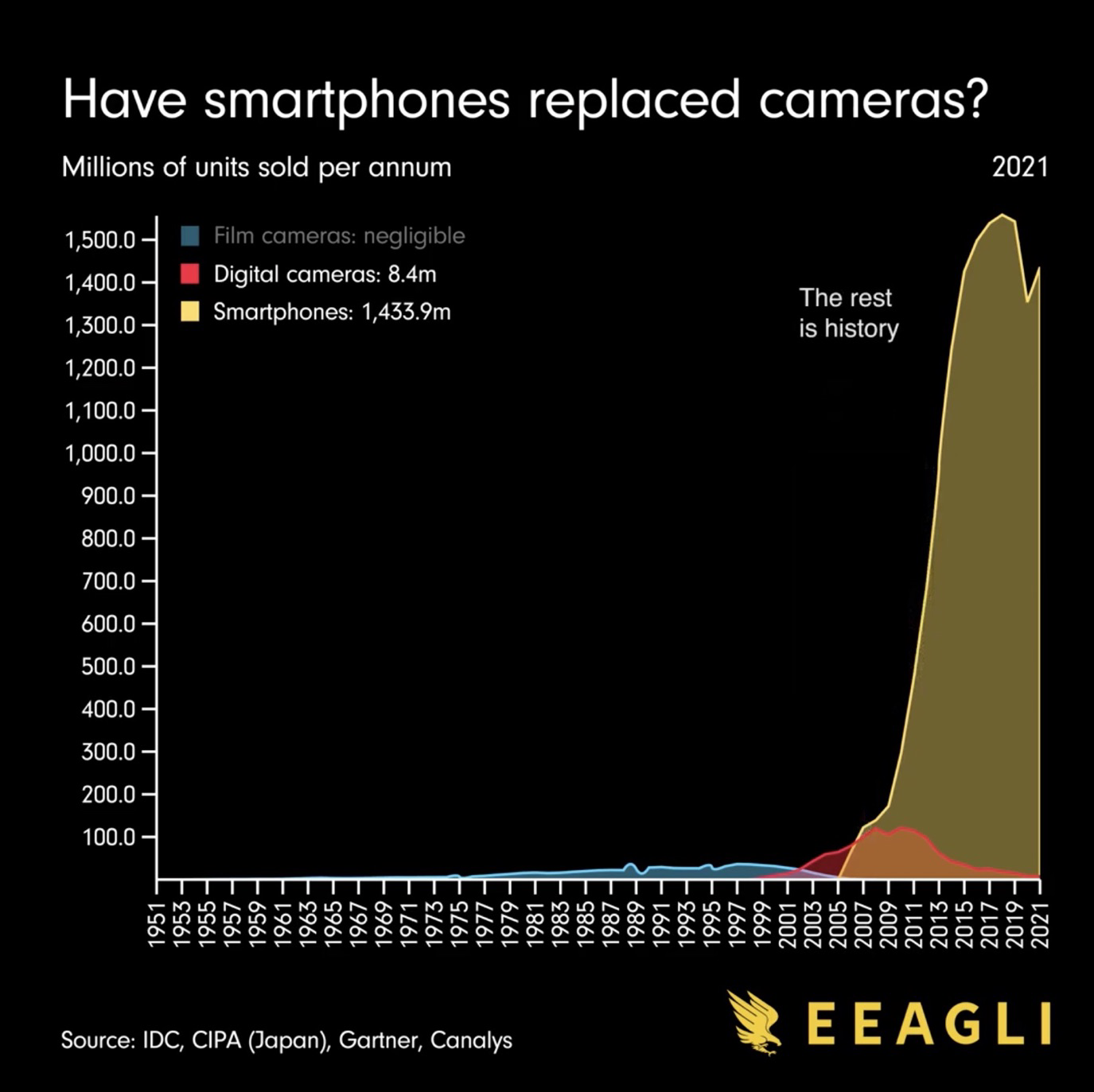Where were we 10 years ago?
It’s been a decade since I gave this short talk at Ignite Minneapolis, titled “How to Take Perfect Photos Every Time.”
I’m sure title was inspired by the sarcasm of the infamous 2009 Merlin Mann and John Gruber talk about blogging ,“149 Surprising Ways to Turbocharge Your Blog With Credibility!”
I’m grateful to Patrick Rhone, who prompted me to try this. I stressed over it for a month, trying to find the correct angle to talk about how corrupt photography-focused publishing had become in 2013.
It was warmly received at the time, and kicked off the writing process that would result in my book, A Lesser Photographer, which went a lot harder on the topic — expanding it to cover creativity in general.
What have we learned since then?
I was fat.
I dropped about 60 pounds after this by dropping carbs. Sometimes shaming works.
The snapshot remained the most important of all photographs.
Look around at what images move cities and nations — they’re usually taken on the fly (or from a bodycam). The democratization of publishing has changed course of humanity.
Cameras really did move to the phone.
Although not really the focus in the speech, the book went deeper into why professional or prosumer cameras were not the future, based on the snapshot being so important. The Daily Beast and others came after me for suggesting this would happen. Now, it’s just considered obvious. This chart says it all.

Where it all goes from here for the next 10 years?
I think the democratization will continue, but be abused on a global scale. It’s too easy to fake authenticity now, so the definition of authentic will change. I worry this will de-value the same citizen-sourced information that has brought so much positive change to the world.
But, I also think that most sources of misinformation aren’t just unethical. They’re lazy and stupid.
Rock stars will be made of those who expose liars, cheaters, and fakers. It’s already happening over on YouTube (check out the meteoric rise of Coffeezilla). We need to embrace these people as consumer watchdogs, rather than calling them “haters.” They will have a tough road for a few years, but we will need them as societal editors.
As with anything in publishing now — especially with the ubiquity of AI in content — it’s the editors and curators of all stripes that will incur the most risk, but reap the greatest rewards.
Trust will move from brands to people.
Creators will move from polished perfectionism (aka “professionalism”) to value and vulnerability.
People will vote with their attention and there’s less attention available with every passing year. Good news: that attention will go to the kind of person who cares enough about their audience to read until the end of this prediction.